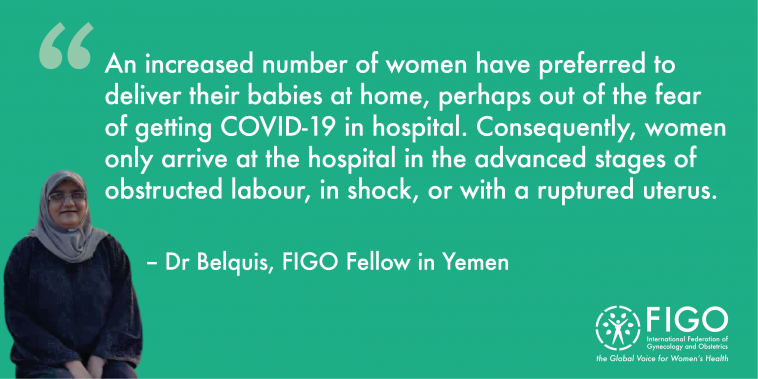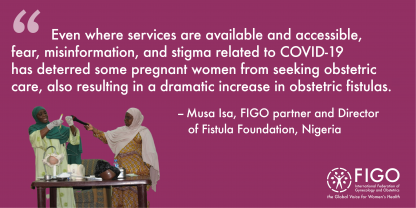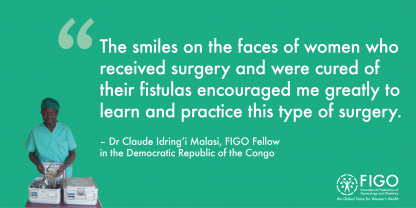Stories from the FIGO Fistula Fellows – Yemen

Obstetric fistula is a neglected public health and human rights issue, and a devastating childbirth injury. It leaves women permanently incontinent, and it is currently estimated that only 1 woman in 50 is able to access corrective treatment.
The FIGO Fistula Surgery Training Initiative is a globally recognised, pioneering programme offering training and education in fistula surgery. Our 67 trainee surgeons – ‘FIGO Fellows’ – provide life-transforming care in some of the world’s most underserved regions, thereby helping to close the fistula treatment gap.
This month we spoke to FIGO Fellow Dr Belquis Aljailani from Al-Thawra Modern Hospital in Sana'a, Yemen, about her experience of being a fistula surgeon and what it will take to eradicate fistula by 2030.
"During my work, I have interacted with many women whose lives had been devastated by obstetric fistula. After what should have been one of the most beautiful times of their lives – the birth of their child – they were left to cope with the terrible outcomes of obstetric fistula, all by themselves, having been shunned by their societies and families. It pained me deeply to see the struggles these women had to endure. I felt a responsibility to do whatever it would take to improve the lives of these women."
Impact of COVID 19 on fistula treatment services
"We do not have any official statistics on the impact of COVID-19 on the occurrence of fistula. However, I have noticed that an increased number of women have preferred to deliver their babies at home, perhaps out of the fear of getting COVID-19 in hospital. Consequently, women only arrive at the hospital in the advanced stages of obstructed labour, in shock, or with a ruptured uterus."
A patient’s story
"During my career, I have met many women with fistula, each with their own unique story. I wish I could share all of them as each shows the urgent need to rid the world of fistula. The story I am sharing is a more recent one.
"Due to the rampant war and poverty in Yemen, many women are unable to access antenatal care. One woman lived in a small village. As her financial situation was very bad, she was unable to receive any antenatal care. When the time of her delivery came, she did not have the money for transport to a nearby healthcare facility and therefore gave birth at home. She suffered for over 24 hours when a neighbour, out of sympathy, took her to a healthcare centre. She was in shock, with a ruptured uterus and bladder. An emergency caesarean section was performed, and her bladder was repaired. The baby had hydrocephalus and was stillborn. In addition to the grief the woman faced for her child, she was left with the distressing symptoms of fistula."
Being a FIGO Fellow
"Being a FIGO Fellow has significantly helped me with my work and the women I treat. The FIGO Fistula Programme has provided me with training that has helped me treat many more fistula cases, making me better at providing the best care to affected women in Yemen."
Eradicating obstetric fistula by 2030
"The FIGO Fistula Programme is doing an amazing job to reduce the cases of obstetric fistula worldwide. To eradicate fistula entirely, I believe that more training for healthcare providers is needed, so we can treat more complicated cases of fistula. I also believe educating women on the importance of receiving expert medical care throughout their pregnancy and during their deliveries is equally important to prevent devastating outcomes such as fistula."
23 May marks the annual International Day to End Obstetric Fistula.
Help FIGO to end obstetric fistula by donating to the FIGO Fistula Surgery Initiative, as well as spreading the message on social media using our toolkit.


